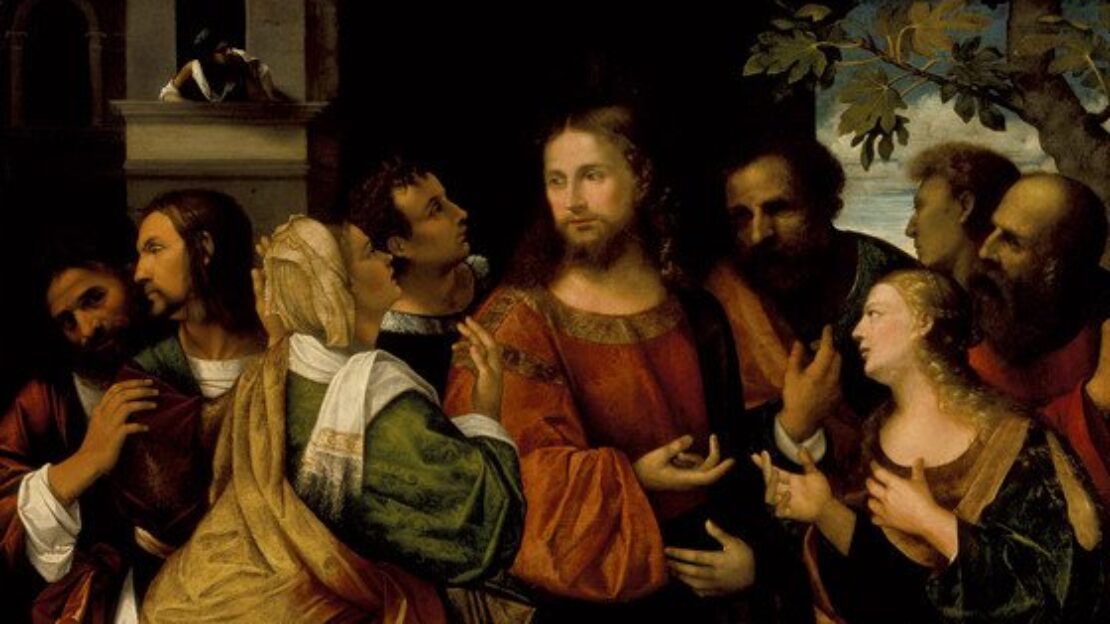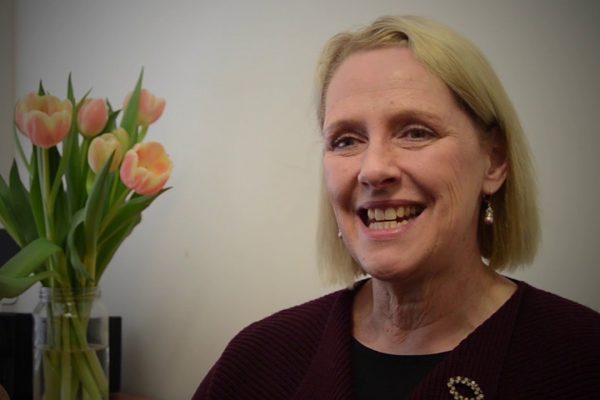Woman you have great faith
Boundaries work in many ways. They are designed both to contain and to protect. The boarders of a country, like Australia, exist to contain the Australian people in this place. We are governed and live by agreed and understood laws and accepted social interaction. Our comings and goings and others comings and goings are regulated, in order to protect those who call themselves Australian. At the moment we are all more than aware of borders and boundaries. Physical distancing, quarantining and so forth, are all demanded of us now as we try to control and limit the impact of the corona virus. State boarders are all but closed, and limited and regulated movement between international boarders, mark just about every country of the globe.
Boarders and boundaries can also act to blind us to the realities and situations of those who are beyond our containment. In the past, and in our day as well, there exist boundaries around Aboriginal and Torres Strait Islanders, women in society, in the Church, and in the work place, and children and vulnerable adults in all parts of the globe. Boundaries can protect but they can also exclude, lock out and blind us.
Today’s gospel is a revelation that the Church can also exist within closed boundaries and a kind of missionary lockdown. From that position we are called to break the boundaries and move out. Matthew’s text of Jesus’ encounter with the Canaanite woman is an insight into this missionary and outward-bound approach. Matthew tell us that Jesus moved from Gennesaret to the region of Tyre and Sidon. Geographically he is moving from the centre, for Gennesaret was on the sea of Galilee, the centre of Israel and its life blood, to Tyre and Sidon, which were villages outside Israel. In fact, you couldn’t get further away – they are right on the coast and at the extremities of the boundaries. It is as if he plants himself in this foreign country, in the midst of Israel’s old enemies, the Canaanites.
And there in an encounter that starts off cold: she cries out and he answers not a word. With an encounter that involved a standoff: I was sent only to the lost sheep of the house of Israel. With what seems to be like an insult: It is not fair to take the children’s food and throw it to the house-dogs. He encounters a woman who knows the power of meeting Jesus Christ, and who demonstrates great faith. She demonstrates that she recognises him as Lord, as powerful and holy. Matthew tells us that she knelt at his feet. In the scriptures it is God, the Lord, the unnamed holy one, whom people bow down and kneel before. Her action indicates she is aware that she is in the presence of the holy one of God. And she knows that he can heal and make whole again. She is not after power and privilege. She is not after a place at his table or a seat at his right or left. She is not looking to be centre of a boundaried religious world. No. Instead from her lips the words flow: Ah, but even house-dogs can eat the scraps that fall from their masters table. She wants a part of what he can offer: life, light, and healing. She has glimpsed that he represents the God who wants only life for humanity, made in God’s image and likeness. She knows he has come to proclaim a kingdom, a culture, that is on offer for all of humanity not just an exclusive few. And in becoming aware of that insight he responds: Woman you have great faith. Let your wish be granted.
We are not told what happens to the disciples as they stood on and watched. But we do know from the previous chapters of Matthews gospel that they had not quite fully understood who he was or to what he was calling them. This Canaanite women seemed to have more insight then they. Perhaps this incident prepared them, and us, for the great commission that Jesus will give them at the end of the Gospel. Go and make disciples of all nations, baptizing them in the name of the Father and of the Son and of the Holy Spirit, and teaching them to obey everything I have commanded you. And surely I am with you always, to the very end of the age.
Break the boundaries and go out in mission. This is one of the themes that Pope Francis has been preaching since the beginning of this pontificate. Back in 2013 he had this to say on the eve of Pentecost Sunday – the day of the birth of the Church.
The Church must step outside herself. To go where? To the outskirts of existence, whatever they may be, but she must step out. Jesus tells us: “Go into all the world! Go! Preach! Bear witness to the Gospel!” (cf. Mk 16:15).. In this “stepping out” it is important to be ready for encounter. For me this word is very important. Encounter with others. Why? Because faith is an encounter with Jesus, and we must do what Jesus does: encounter others. With our faith we must create a “culture of encounter”, a culture of friendship, a culture in which we find brothers and sisters, in which we can also speak with those who think differently, as well as those who hold other beliefs, who do not have the same faith. They all have something in common with us: they are images of God, they are children of God. Going out to meet everyone, without losing sight of our own position.
For each of us going to the outskirts will be different. For some this will be a change of mind, for some a change of heart, for others exciting and for others yet again a frightening prospect. The gospel tells us though that ultimately our faith sends us outward not just inward. Corona virus has given us much inward looking time. We should use it as a parish and church community to decide how we might move out.
Image: Christ and the Women of Canaan, Rocco Marconi, Venice Italy 1505-1529




Comments
Brian Hickey
A great thought provoking homily. Thank you.
Add Comment